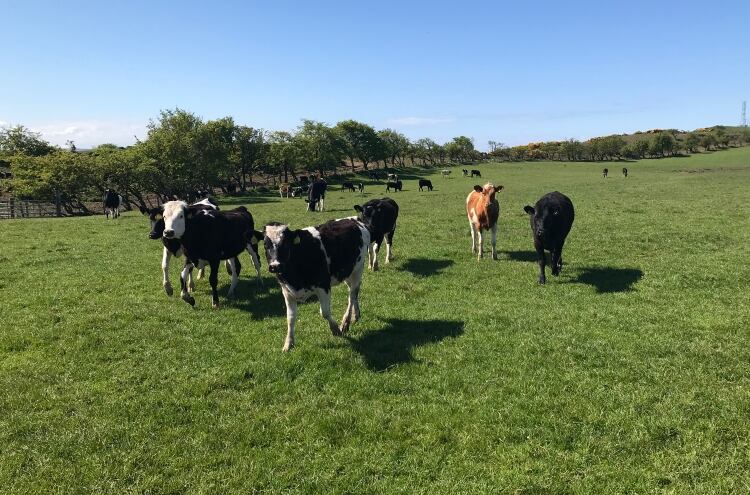To help with this, Cargill and ZELP (Zero Emission Livestock Project) have partnered to bring European dairy farmers a solution to reduce methane emissions, combining technology in methane oxidation and data processing to minimize the environmental impact of dairy production while improving animal welfare.
Enteric methane is a natural by-product of cattle digesting feed, which is then released from the mouth and nose. Using smart technology, ZELP developed a cattle wearable that neutralizes part of this methane as it is exhaled. Cargill will be the exclusive distributor of the device for the European dairy market.
“Farmers and agribusiness are looking for ways to drive methane mitigation and change for our planet, while meeting the challenge of feeding a growing population,” said Delphine Melchior, sustainability and quality sector director for Cargill’s aqua and animal nutrition business.
“By partnering with ZELP, we are in a unique position to help significantly reduce the greenhouse gas emissions associated with livestock production.”
As much as 95% of an animal’s methane emissions come from its mouth and nostrils. The ZELP technology, which attaches to regular halters, captures and oxidizes those emissions.
Francisco Norris, CEO and co-founder of ZELP, said, “We are combining data processing with unique catalytic technology to reduce methane emissions and improve animal welfare. We continue improving the efficiency of our technology, which has already demonstrated a 53 percent reduction potential. We’ve also evaluated the wearable’s effect on animal behavior and found no impact on production yields, rumination, rest and activity periods, and feed intake.”
The ZELP wearable device also gives dairy farmers new insights into the health and performance of their livestock. The technology captures a range of behavioral and physiological data, in addition to monitoring animals’ breath and methane emissions. This data feature could allow farmers to increase productivity, help detect if an animal is overheating, anticipate diseases and prevent outbreaks, and provide deeper insights of digestion, feed optimization, and feed conversion efficiency.
In the coming months, Cargill and ZELP will conduct additional testing at the Cargill Research and Development Center and at Wageningen University. Following their completion, the companies expect to launch the ZELP wearable in the second half of 2022.
“Our collaboration with ZELP and the role of new technologies is part of a broader strategy to accelerate progress towards our sustainability commitments for customers and consumers,” said Sander van Zijderveld, Cargill’s ruminant strategic marketing and technology lead in West-Europe.

